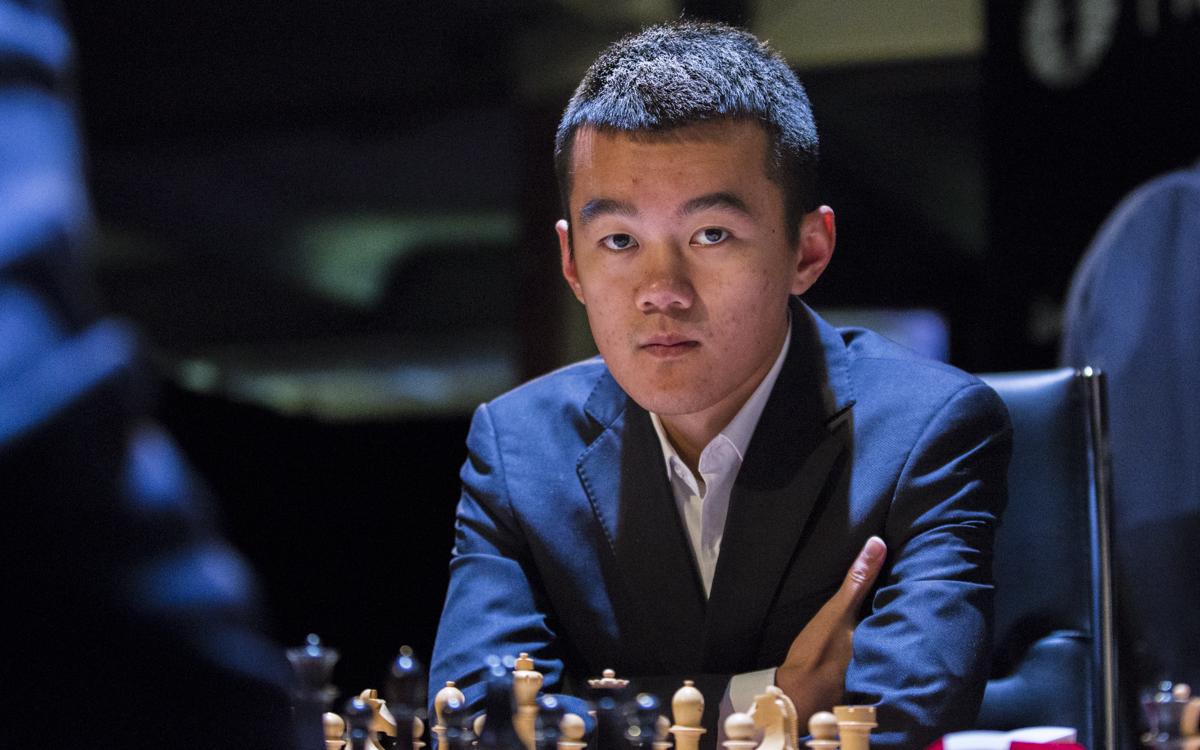
How Ding Liren Let Me Down
Just like most people who love chess, I have certain favorite players.
Notice how many times I've mentioned Mikhail Botvinnik, Mikhail Tal, Garry Kasparov and Magnus Carlsen in my articles and you'll get an idea of my chess preferences.
There are also non-world champions that I like a lot. Ding Liren is one of them. You can read my articles about him here and here. It may come as no surprise I believe the Chinese grandmaster is the biggest threat to Carlsen's chess hegemony. [Editor's note: And this was written before Ding beat Carlsen and won the prestigious Grand Chess Tour over the weekend.]
I guess now you can understand my pain when I watched the following endgame:
This episode truly shattered my world. I know many of you will say: "Relax, Greg, this is just a rapid game; give him a break," so let me explain why I am so upset.
You see, there are different kind of mistakes a human can make. If I wake you up at 3 a.m. and ask what is 17 times 32, I won't be surprised if you give me the wrong answer. Now imagine the same situation, except instead of multiplication I asked for your name. If you make a mistake answering this question, then I guess you have some sort of a problem.

We have a similar situation in the above game. If Ding Liren blundered a rook or missed a checkmate-in-one, I wouldn't be surprised a bit. That is the nature of rapid chess. This endgame, however, is an elementary part of chess and he was supposed to know it by heart. This is something that has been known for over 100 years!
Let me show you how it is supposed to be done.
First, do not push your rook pawn too far as you want to achieve the position where both your pawns are on the sixth rank, which forces your opponent's rook to stay passive protecting against a checkmate on the back rank. The following kind of position should appear almost automatically:
Then you have two winning methods here. One is just to trade the rooks, like it was done in the following game:
The second method is faster if you know what you are doing and avoid stalemate tricks. You keep your rook on the fifth rank to protect your king against checks, push your rook pawn and checkmate your opponent. Here is another classic example:
You see, it is quite simple if you know this endgame. I remember that I didn't experience any problems in this endgame even though I was short on time in a rapid game:
Recently one of my students had exactly the same endgame. Even though she had trouble initially, in the end she figured out how to win it:
I praised her play but explained that she moved her rook pawn too far from her other pawn and that's why she experienced some problems. Well, kids learn fast and I am sure that this 12-year-old girl will never have problems again in this kind of an endgame. I also explained to her that there are some basic endgames that every decent chess player should know, and this is one of them.
"Any master would easily win this endgame provided he has a minute on his clock and a five-second delay," I said at the end of our lesson, trying to deliver the point.
The Internet is a dangerous place where kids can stumble on an inappropriate video. What I fear the most is that the inappropriate video I am talking about is the next one:
Go directly to about 3:58 and see what happened there. The super-GM Ding Liren and all the GM commentators made the most basic mistake!
Now you see why I am upset—really, really upset. What am I going to tell my students when they ask me questions about this episode? It is like the marijuana thing all over again!
I am sorry; I guess I need to explain. You see, as a father of two kids, I have been instilling in their minds that drugs are evil. For years they have been learning that drugs are something you just don't do, period!
Then one day marijuana was legalized in our state. How could I answer their questions? Since they are too young to grasp the crooked world of politics, I tried to explain it to them using language they could understand.
I said something like "Look, Justin Bieber's songs are perfectly legal, but it doesn't mean that they are good or you should listen to them, right?"

My kids readily agreed. "It's the same deal is with marijuana," I triumphantly concluded our conversation.
Now you understand the problem: How should I explain to my students that they must know basic endgames even if the world's top players don't? And Justin Bieber doesn't even play chess!



